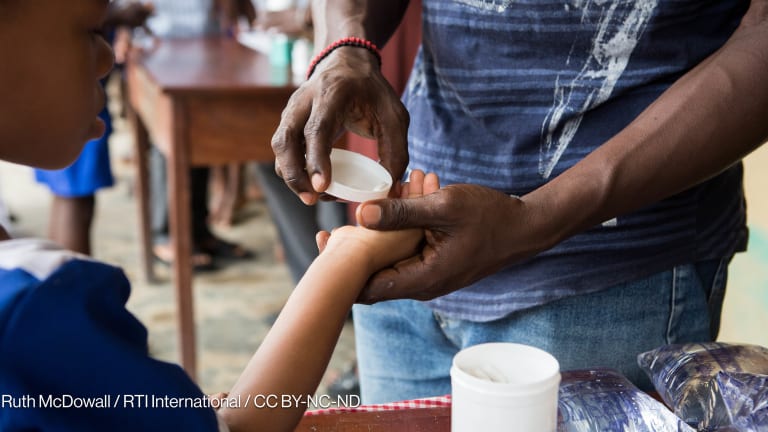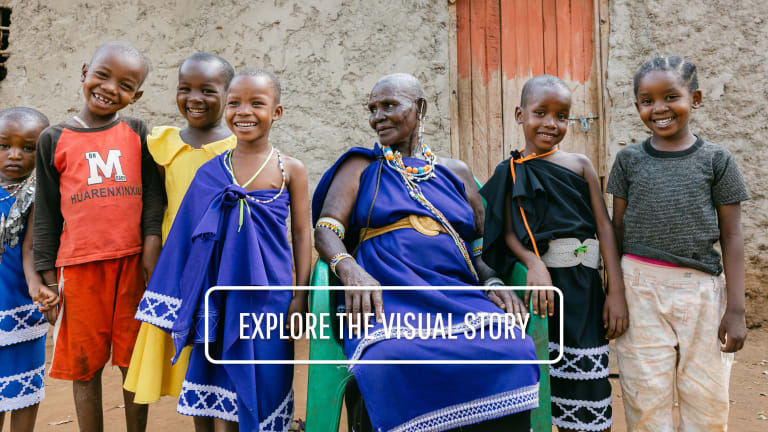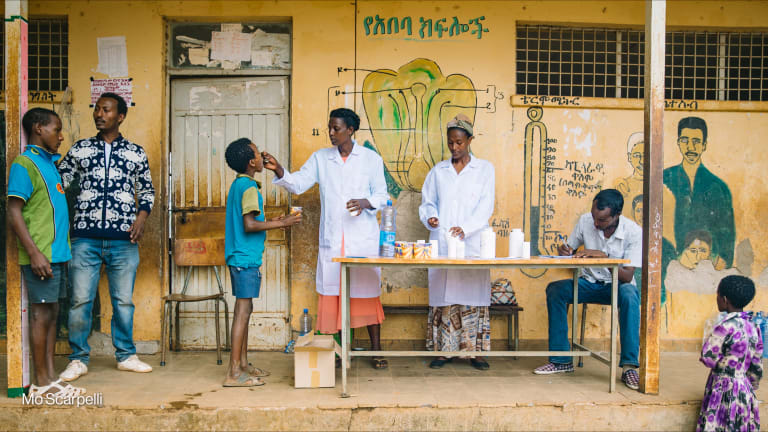“Neglected tropical diseases have a double gap,” said John-Arne Røttingen, CEO of Wellcome and former ambassador for global health with Norway's Ministry of Foreign Affairs.
Speaking to Devex President and Editor-in-Chief Raj Kumar at the World Economic Forum in Davos, Røttingen discussed gaps and opportunities in funding neglected tropical diseases, or NTDs, as part of broader health efforts.
“There is still a substantial innovation gap — we do not have the necessary technologies and the most modern technologies for treatment and prevention. Then there is an access gap — we are not fully using the tools that we have in the toolbox.”
The nature of NTDs means the impact is most acutely felt by “the most vulnerable people in the most vulnerable countries.” It also means funding the treatment of these diseases — many of which Røttingen noted we have the opportunity to eliminate at local levels — requires an almost humanitarian approach, with pharmaceutical companies continuing donation programs and the wider sector taking a collective responsibility toward improving prevention, control, and treatment programs to plug the double gap.
“We need strong partnerships across private sector, philanthropy, and public sector in making sure that we meet the innovation needs that are not met currently, and that we have approaches to equitable access across all major disease areas.”
However, Røttingen added that the global health architecture’s current setup presents an additional challenge. With the world experiencing a key political and investment moment, now is the time to take a holistic look at the global health architecture.
The global health architecture — an interconnected network of organizations, governance frameworks, funding mechanisms, and policies — aims to ensure resource mobilization and coordinated responses to global health emergencies, much like the one seen during the COVID-19 pandemic. While designed to ensure equal access to health, global solidarity, and transparency, the system has become increasingly complex and overburdened, leading to a fragmented and ineffective network.
“To have architecture, you need an architect,” he said. “There is no clarity — who’s the architect, what's the body, what is the mechanism for having a holistic view of the landscape?
“We need more efficiency in that. We need more effectiveness.”
To hear more from Røttingen about how to make the NTD space more efficient and his hopes for the future, click on the video above.
Visit Escape the Neglect — a series exploring the extraordinary progress that countries are making in eliminating neglected tropical diseases, or NTDs, and showcasing promising opportunities to build on recent wins.
This content is part of our Escape the Neglect series. Click here to learn more.









